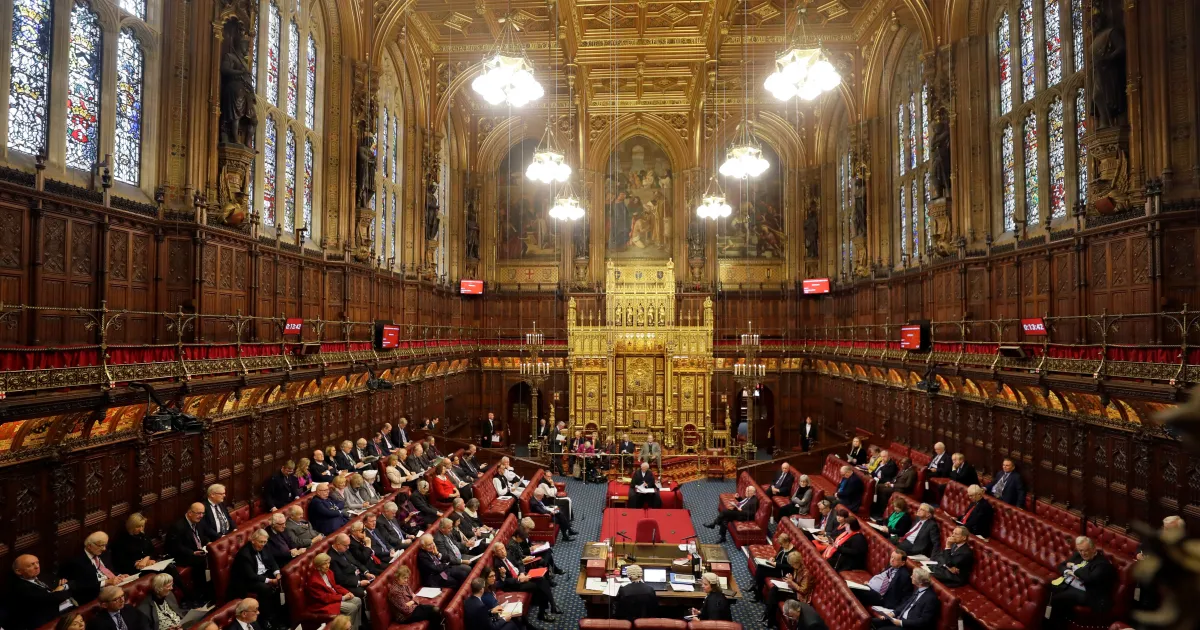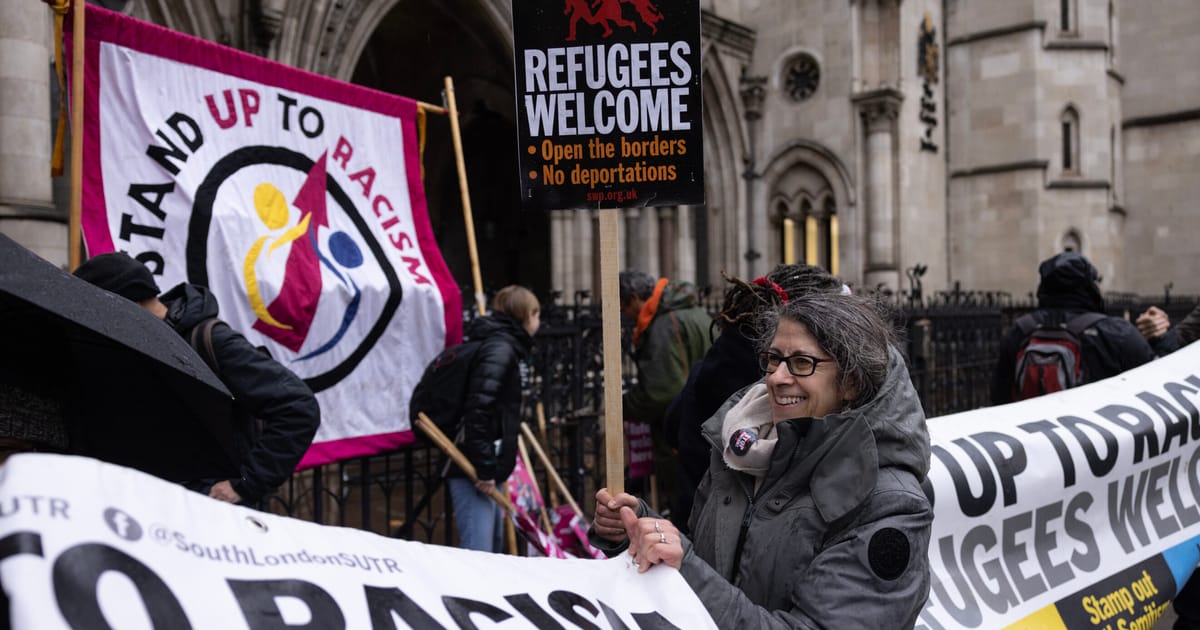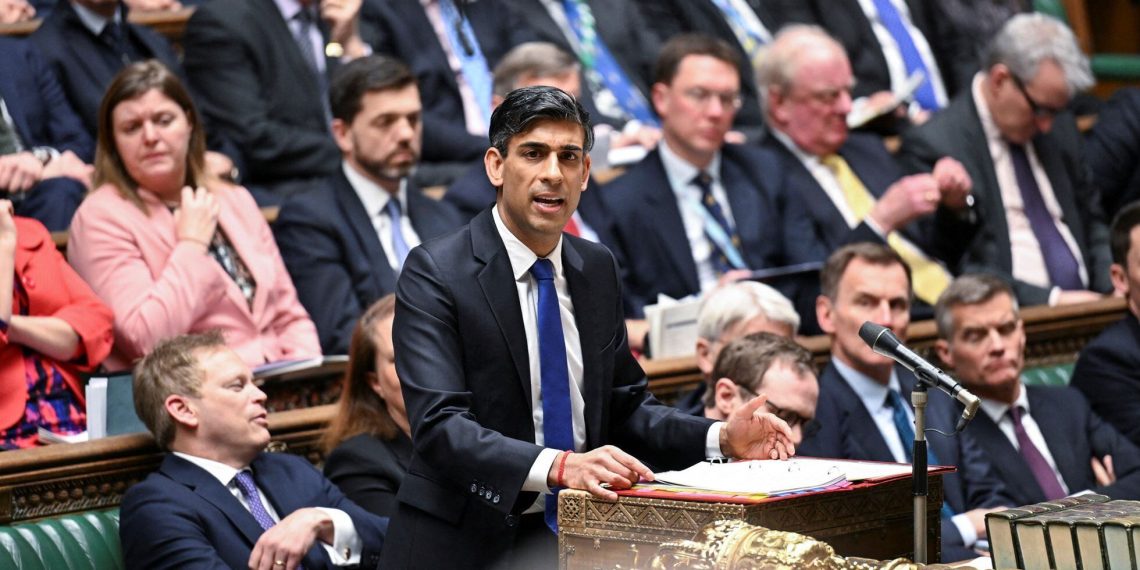British Prime Minister Rishi Sunak encountered his initial legislative setbacks concerning his proposal to send asylum seekers to Rwanda, as the upper house of parliament insisted on enhanced protections before deportation flights could proceed.
The plan, yet to be enacted, involves relocating asylum seekers arriving on England’s southern coast to Rwanda. Despite legal challenges delaying deportations, Sunak’s government seeks to push through legislation designating Rwanda as a “safe country” for asylum seekers to prevent further legal hurdles.

Members of the House of Lords, mainly comprising former politicians and officials, advocated for amendments requiring the full implementation of legal safeguards and evidence of Rwanda’s safety for refugees before deportation flights could be authorized.
However, the elected House of Commons retains the authority to reject these amendments, leaving the legislation’s fate uncertain.
Critics raised concerns about the current draft of the legislation, arguing that it could deem Rwanda as a “safe country” irrespective of the actual conditions. Christopher Tugendhat, a Lord from the governing Conservatives, compared the government’s approach to the authoritarian regime depicted in George Orwell’s novel “1984.”
Sunak expressed his desire to initiate deportation flights within the coming months, aiming to fulfill his promise to “stop the boats” ahead of the anticipated general election later this year.

The proposal comes amidst a surge in asylum seekers arriving in Britain via small boats, with more than 2,500 individuals having made the journey so far this year. Tragically, a seven-year-old girl lost her life over the weekend in an attempt to reach Britain when the boat she was on capsized off the coast of France.
According to a recent financial evaluation, the British government estimates the cost of deporting the initial 300 refugees to Rwanda to exceed £600 million ($762 million).





